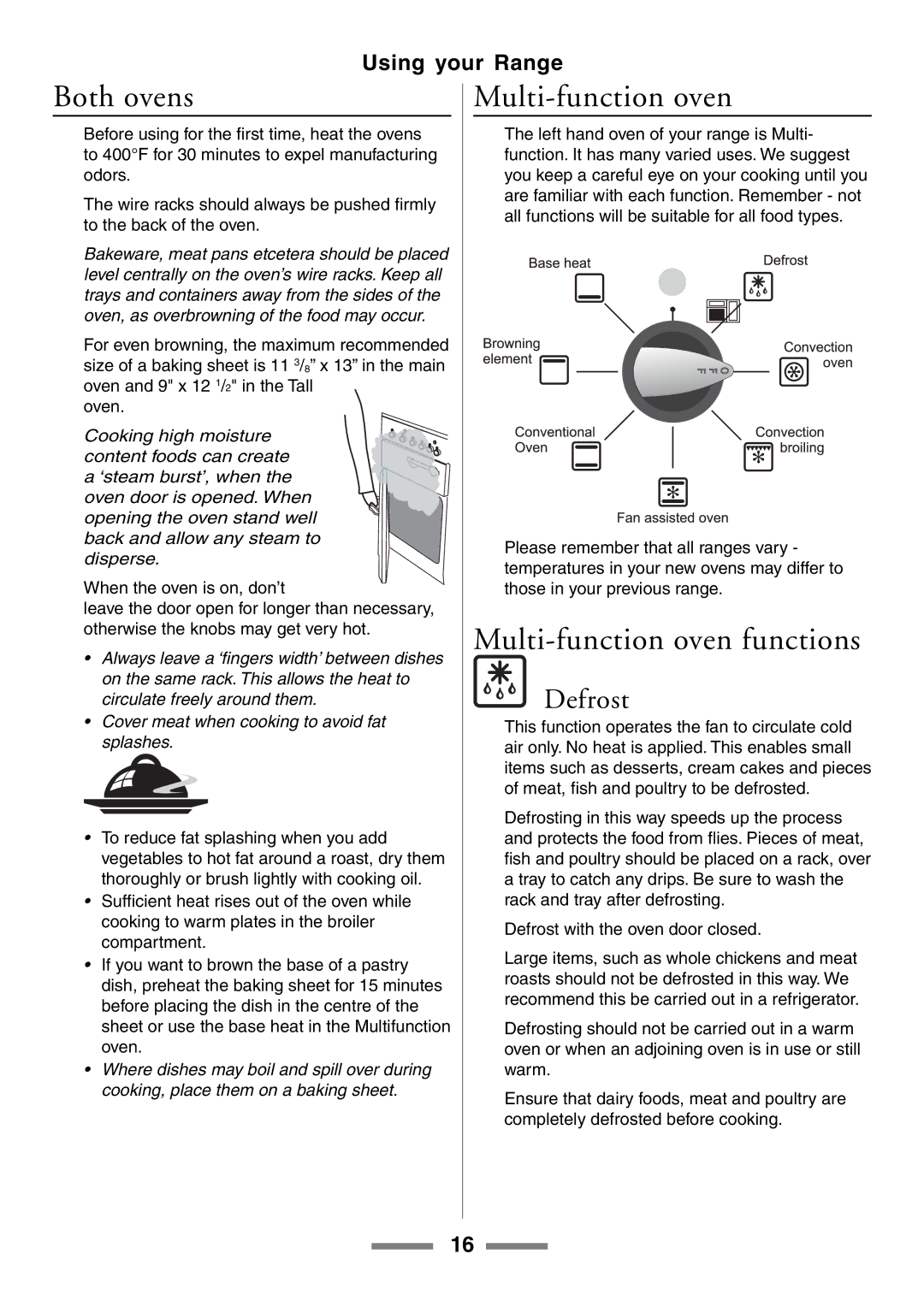U104601-01 specifications
Aga Ranges U104601-01 is a premium cooking appliance that combines traditional craftsmanship with modern technology, resulting in a truly unique kitchen centerpiece. Known for its distinctive design and exceptional cooking capabilities, the Aga U104601-01 is ideal for both professional chefs and home cooks alike.One of the main features of the Aga U104601-01 is its cast-iron construction. This material is not only durable but also provides excellent heat retention and distribution. The even heat distribution ensures that food is cooked evenly, eliminating hot spots that can lead to uneven cooking. The cast-iron design also retains heat even when the oven is turned off, allowing for energy efficiency while maintaining a warm atmosphere in the kitchen.
The Agar U104601-01 comes equipped with multiple cooking modes, including roasting, baking, and simmering. Each mode is designed to cater to different culinary techniques, allowing cooks to achieve the perfect results regardless of the dish. The oven’s unique heat management system ensures that each cooking zone maintains its optimal temperature, enabling various dishes to be cooked simultaneously without flavor contamination.
In addition to its impressive cooking features, the Aga U104601-01 also offers a range of advanced technologies. The unit is designed with a user-friendly interface, making it accessible for cooks of all skill levels. The integrated timer, temperature gauges, and intelligent heat sensors provide precise control over cooking times and temperatures, ensuring consistent results every time.
Safety is a significant consideration in the design of this appliance. The Aga U104601-01 includes features such as cool-to-the-touch handles and an insulated exterior, reducing the risk of burns during use. The unit is also designed with smart ventilation to keep the kitchen environment comfortable while cooking.
The aesthetic appeal of the Aga U104601-01 cannot be overlooked. Available in a variety of colors and finishes, this appliance serves as both a functional cooking tool and a stylish addition to any kitchen decor. Its timeless design bridges the gap between vintage charm and contemporary sophistication, making it a statement piece in any culinary space.
Overall, the Aga Ranges U104601-01 is a remarkable cooking appliance that showcases the best in design, functionality, and safety. Its combination of durable materials, advanced technologies, and visual appeal makes it a standout choice for those who appreciate high-quality kitchen equipment. Whether preparing a gourmet meal or a family dinner, the Aga U104601-01 promises to enhance the cooking experience.

